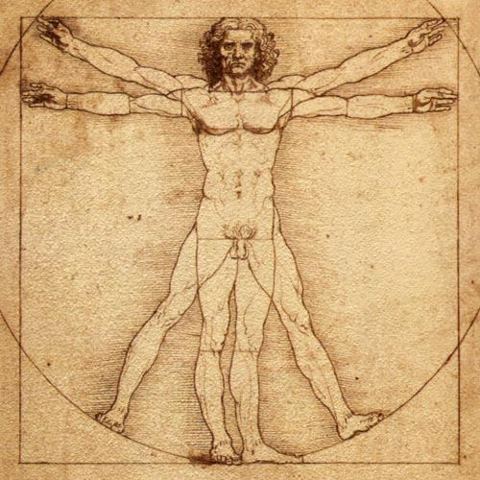A human being is part of a whole – called by us the ‘Universe,’ a part limited to time and space. He experiences himself, his thoughts and feelings as something separated from the rest – a kind of optical delusion of consciousness. This delusion is a kind of prison for us, restricting us to our personal desires and to affection for a few persons nearest us. Our task must be to free ourselves from this prison by widening our circles of compassion to embrace all living creatures and the whole of nature in its beauty.
~ Albert Einstein

image: Leonardo Da Vinci
I recently posted this to Facebook, where a friend commented that it’s a difficult task to be limitless. Yet I think in some ways this is the very thing we most, in the deepest recesses of being, want for ourselves. It almost feels like an imperative, driven from a need to yearn for limitlessness, like the Universe possessing a longing to express itself through all its life forms (we humans likely being the most recalcitrant when it comes to a reception of that nature).
And what is it that makes us perceive ourselves separate from, say, the snail? Many agree it’s because humans alone possess a rational mind from which springs thought. Reflection. Emotion. I love my mind; thrill at its accomplishments – how I can, for example, pick up a set of pastels after having put them down over twenty years ago and render a decent portrait.
I love crafting words into sentences – tweaking this and cutting and pasting that. I love that birds can fly and have such an expanded view of the sky and the forest and sea – but I wouldn’t actually wish to be a bird. Instead if I could, I would project my consciousness into that creature enough that I could experience flight without distressing it in any way. But as a bird, I would be exposed to a great deal of uncertainty as well as having too short a life span to grow beyond my species’ limitations.
The human mind can rule a person to such an extent that some of us truly do forget quite easily (thus the optical delusion of consciousness). We forget where we placed our keys, but also we have difficulty in connecting with our primal origins, which is another form of forgetting, perhaps a kinesthetic one. To free the mind, I must be willing to release that which I once felt supported me. The walls of personhood begin to crumble, and who am I, if not my history, my heartbreaks, my victories? Yet these are the same walls preventing me from granting a greater power more direct access. Ironically, relinquishing walls gifts me with a wider freedom and ease. But it can be alarmingly unfamiliar too, and I have a built-in resistance to change that must be DNA-deep (though I work to soften it daily).
As I open and relax into expansiveness, I discover other, deeper layers that begin to soften as well. Yet words and concepts are one thing. Actually embodying this sort of magnitude of change takes practice. But as it becomes more familiar, it feels right, somehow. I begin glimpsing how my own life works. Conversely, I notice the underpinnings of others – their pain and suffering at living illusion and making it real. I know. I’ve been there. Now I can wish for them to awaken to that spacious beauty within, just like the trees and the ocean and the wind. The forest becomes my home, as does the sea (and, when I fly in an airplane or in dreams, the sky). This home is sacred. Thus I seek balance – not just for myself, because I do not exist outside the cosmos. What is personal extends beyond boundaries to all of life – for we are all dancers in this great cosmic experiment.

image: homeinteriordesignthemes.com